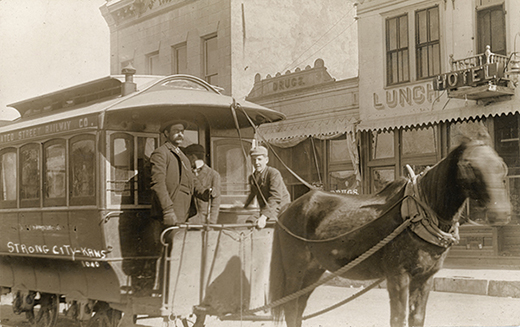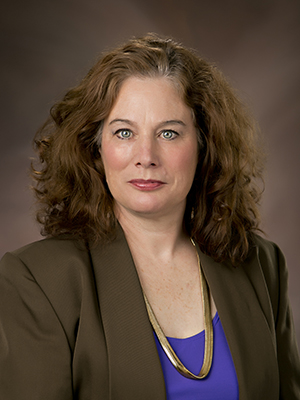Chapman Center for Rural Studies receives National Endowment for the Humanities grant to help museums and historical societies prepare for the future
Tuesday, Dec. 19, 2017

The Chapman Center for Rural Studies at Kansas State University has received funding from the National Endowment for the Humanities to help Kansas museums and historical societies plan and preserve collections, such as this 1910 postcard from Strong City. | Download this photo.
MANHATTAN — The Kansas State University Chapman Center for Rural Studies has been awarded $100,000 by the National Endowment for the Humanities to help rural historical societies and museums in Kansas with professional planning in collections, preservation and programming.
The Chapman Center grant — the only one awarded in Kansas — is one of 253 projects nationwide funded through the NEH in 2017.
Bonnie Lynn-Sherow, executive director of the Chapman Center and associate professor of history, said the grant will fund a two-year project to help small Kansas museums develop plans to help them succeed. She said vibrant small-town museums and historical societies are crucial to maintaining the economic health of rural communities because they broaden and solidify local identity.
"Local identity is largely based on peoples' understanding the history of their community, and local identity drives economic development because it helps communities brand themselves as unique places in drawing tourists and business investment," Lynn-Sherow said. "Local identity also generates community pride that helps sustain amenities in the community such as parks, good schools, and cultural events."
Small museums are typically staffed by highly committed volunteers who simply lack the tools to develop five- to 10-year plans, according to Lynn-Sherow.
Grant funds will support four beginning graduate students in the College of Arts and Sciences. They will receive training from Lynn-Sherow and the Center for Engagement and Community Development in museum planning and management as well as civic discourse. Under the guidance of Lynn-Sherow, they will then work as consultants with eight Kansas museums to develop plans for fundraising, exhibitions, public programming and preservation.
Lynn-Sherow said local institutions rarely have the technology or training to preserve their priceless collections through digitization.
"We hope local societies will move toward digital preservation," she said. "They can upload content to the web, and people from across the country can access their collections. This can inspire visitors to do research in their collection and publish their findings, which helps raise the visibility of the community."
Peter Dorhout, Kansas State University vice president for research, said the Chapman Center has had a positive impact on the state.
"This project is an excellent example of how K-State brings value to communities around the state, and we appreciate the National Endowment for Humanities funding for the Chapman Center for Rural Studies," Dorhout said. "The center has provided hands-on training for K-State students and resources to our state since it was established in 2007 and is a true land-grant outreach that enriches the lives of Kansans."
The project will help the Chapman Center continue to offer valuable experiences to Kansas State University students.
"The learning opportunity this grant provides to students — in being truly engaged with members of the nonacademic community — cannot be overstated," Lynn-Sherow said.
"This will be a life-changing experience for everyone and open the door to new career paths," she said.
The Chapman Center will match funds from the National Endowment for the Humanities with another $100,000 provided to the center through charitable gifts to Kansas State University via the Kansas State University Foundation. Selected graduate students will complete four projects in summer 2018 and four in 2019.

